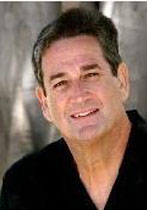By Rabbi Ben Kamin

SAN DIEGO — What was so revealing at the time of his painful thrust into the national spotlight was the media refrain about “Motorist Rodney King.” It was as though the unlucky young man was in constant motion, agitated, seeking a place to alight, and ultimately homeless. It was 1991, Los Angeles, the churning slums, the dangerous and forsaken freeways, and it was an America that had not yet looked itself in the postmodern mirror. It was a police force bereft of training and restraint and a black community, mostly restive males, who knew that they had no future; the two forces collided mercilessly against the body of Rodney King, with clubs, fangs, hate, and the intervention of a video camera that changed our vision.
As he himself made clear, he was no hero, this unfortunate and misbegotten victim of circumstances, who never looked comfortable in his white blazer and low-grade bling. His face, eternally misshapen by the beatings and the glare of our voyeurism, never quite fit the persona. His mouth was a wound; we wanted him to pour out eloquence and wisdom from it but it all really showed us were teeth and agony. The best he could do one afternoon was, “Can we all get along?” And we grabbed at this bittersweet little aphorism, not realizing that Rodney was the one who could not get along with the glib standards of white hypocrisy and symbol-making.
In the end, the bad cops won. Rodney did not survive the beating that effectively lasted for twenty-one years. He found peace in the soothing waters of a swimming pool; he found healing in the relief of a cool blue exit. He couldn’t be himself on the freeways of LA back then because the LAPD assumed he was a criminal. He couldn’t be himself on the talk shows, with the opportunistic pop psychologists and the photographers because they assumed he was something other than another discarded black male now trapped in a cultural warp. We painted him every color but what he was. We wanted to mollify our national conscience when we should have wanted to educate, feed, and guide every Rodney King in this country from the freeway to the free way.
Rodney King has spoken with articulacy and elocution. This world we let fester in our urban neighborhoods, in our slums, in our second- and third-rate schools relegated for people of color, and in our subliminal racism that is perfumed by clever rhetoric—this world was what he could not get along with. Perhaps we failed from the beginning to understand something: Rodney King was not a motorist; Rodney King was a man.
*
Rabbi Kamin is a freelance writer based in San Diego. He may be contacted at ben.kamin@sdjewishworld.com
Pingback: Rodney King death: authorities to carry out autopsy after ruling out foul play – The Guardian « Wiadomości